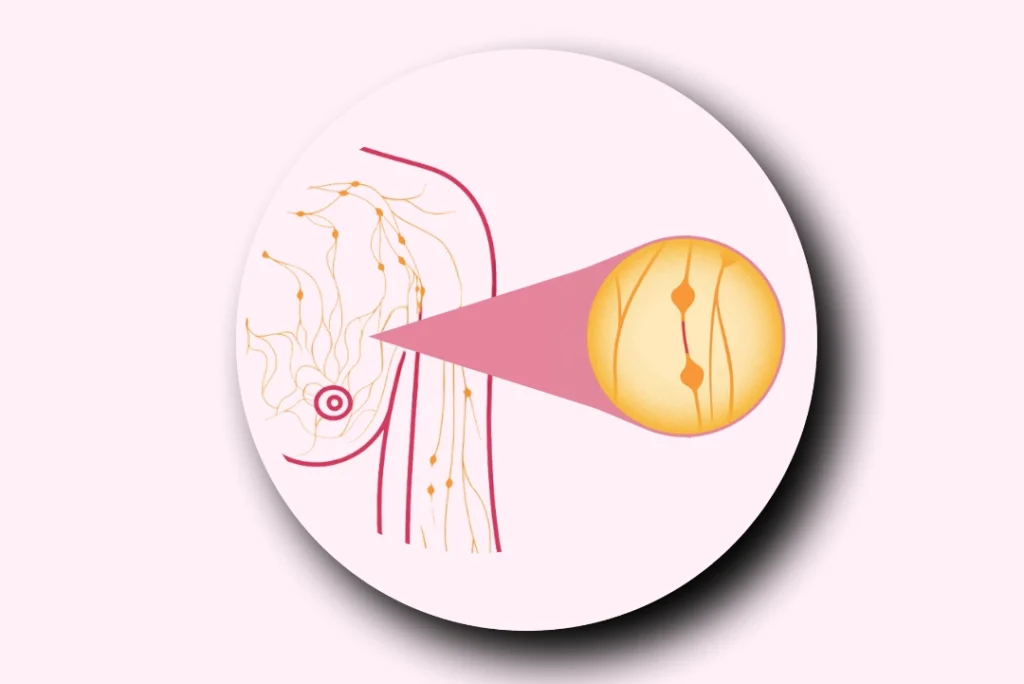Inflammatory Breast Cancer (IBC) is a rare yet aggressive form of breast cancer that requires immediate attention. Understanding the IBC cancer treatment process, its symptoms, causes, and preventive measures is crucial for early diagnosis and effective management. In this post, we will explore all these aspects while guiding you through the stages of awareness, interest, desire, and action.
Overview of Inflammatory Breast Cancer
Inflammatory Breast Cancer (IBC) is an aggressive and rare form of breast cancer. Unlike other types of breast cancer, it does not present with a distinct lump but manifests through inflammation, redness, and rapid changes in breast appearance. Immediate medical attention is crucial for successful treatment of this condition. Given its aggressive nature, early detection of inflammatory breast cancer significantly improves outcomes.
Symptoms of Inflammatory Breast Cancer
Identifying the symptoms of inflammatory breast cancer early is crucial for initiating timely treatment. The symptoms often resemble an infection or inflammatory condition, but they can escalate quickly, sometimes within a matter of weeks.
- Redness and swelling: The breast may appear inflamed or swollen, which can be confused with an infection.
- Increased warmth: The affected area often feels warmer than the surrounding skin due to underlying inflammation.
- Skin thickening or dimpling: The skin may take on a texture similar to an orange peel (known as peau d’orange).
- Pain or tenderness: These symptoms might be subtle at first but can intensify rapidly.
- Rapid changes in size or shape: Unlike other types of breast cancer, where tumors form gradually, breast cancer may cause swift, noticeable alterations in breast size or shape.
- Nipple inversion or discharge: In some cases, the nipple might turn inward, or there may be unusual discharge.
The rapid progression of these symptoms makes inflammation unique and highly aggressive. Patients experiencing these symptoms should consult a healthcare provider immediately, as prompt diagnosis and treatment are essential for improving prognosis. If any symptoms of advanced inflammatory occur, seek professional help immediately.
Types of Inflammatory Breast Cancer
While inflammatory breast cancer is a distinct subtype, it can still exhibit different behaviors and responses to treatment depending on its stage and molecular characteristics. Early detection of the specific type and stage of inflammatory breast cancer is crucial in devising a targeted treatment plan.
- Early-stage Inflammatory Breast Cancer: This form remains localized to the breast and possibly nearby tissues like the lymph nodes. Treatment typically involves systemic therapies like chemotherapy followed by surgery and radiation to eliminate localized cancer cells.
- Advanced Inflammatory Breast Cancer: This type indicates that the cancer has spread beyond the breast to other parts of the body, such as lymph nodes, the liver, or bones. Managing advanced inflammatory requires a more aggressive and multidisciplinary approach, combining chemotherapy, targeted therapies, and possibly newer treatments like immunotherapy.
Understanding these subtypes and stages helps clinicians adopt a more tailored and comprehensive treatment plan, improving the patient’s quality of life and long-term outcomes. Additionally, genetic testing and molecular profiling may reveal actionable targets, allowing for the use of newer, more personalized therapies. This ensures that treatment is not just about controlling the disease but also about enhancing the overall well-being of the patient during their cancer journey.
Advanced Inflammatory Breast Cancer Symptoms
When advanced inflammatory breast cancer develops, patients may notice more severe symptoms beyond localized changes. These include:
- Swelling of the arm due to lymph node involvement.
- Bone pain or fractures if cancer spreads to the bones.
- Shortness of breath if the cancer affects the lungs.
- Jaundice, indicating liver involvement.
If any of these advanced inflammatory symptoms are detected, it’s critical to consult with a specialist to determine the next steps in treatment.
IBC Cancer Treatment
Treatment for IBC cancer requires a comprehensive, multidisciplinary approach. Because of its aggressive nature, treatment usually involves:
- Chemotherapy: Often administered before surgery to shrink the tumor.
- Surgery: Following chemotherapy, a mastectomy may be recommended to remove the breast tissue.
- Radiation Therapy: Used post-surgery to eliminate remaining cancer cells.
- Targeted Therapy: Designed to target specific molecular markers in breast cancer.
- Immunotherapy: A newer option that boosts the body’s immune system to fight cancer.
Advances in IBC cancer treatment continue to improve the prognosis, but early diagnosis remains key to successful outcomes.
Risk Factors for Inflammatory Breast Cancer
While the exact causes of inflammatory breast cancer remain uncertain, several factors may increase the likelihood of developing this disease:
- Age: More common in women under 50.
- Ethnicity: African American women are more likely to develop IBC than Caucasian women.
- Obesity: Being overweight increases the risk of developing breast cancer, including IBC.
- Family History: Those with a family history of breast cancer have a higher risk.
Understanding these risk factors can help individuals remain vigilant about their breast health and recognize early symptoms.
Types of Inflammatory Breast Cancer Treatment
There are various approaches to IBC cancer treatment, and each case may require a unique plan based on the stage and spread of the disease. The main types of inflammatory treatments include:
- Systemic Therapy: Involves chemotherapy, hormone therapy, or targeted therapy that circulates through the bloodstream to reach cancer cells throughout the body.
- Local Therapy: Surgery and radiation are localized treatments that target cancer cells in the breast and surrounding areas.
Working with a team of specialists will ensure a comprehensive treatment strategy tailored to the patient’s needs.
Prevention and Early Detection
Preventing inflammatory breast cancer is challenging, but adopting a healthy lifestyle can reduce the risk:
- Regular screening: Mammograms and breast self-exams are crucial for early detection.
- Healthy diet and exercise: Maintaining a healthy weight reduces cancer risk.
- Limit alcohol: Reducing alcohol consumption lowers breast cancer risk.
- Quit smoking: Smoking increases the risk of various cancers, including breast cancer.
- Genetic counseling: Those with a family history of breast cancer should consider genetic testing and counseling.
These proactive steps can aid in the early detection of inflammatory breast cancer, improving treatment success rates.
Conclusion
Inflammatory breast cancer is an aggressive condition that demands immediate attention and a multidisciplinary treatment approach. With advancements in IBC cancer treatment, patients now have more options for managing and treating the disease effectively. Recognizing the symptoms early, understanding the types of inflammatory breast cancer, and seeking prompt medical care is key to improving outcomes. If you or a loved one experiences signs of inflammatory, especially advanced inflammatory breast cancer symptoms, contact a specialist for an evaluation. Early diagnosis can make all the difference in your treatment journey.





